Description
ABSTRACT
An Analysis of the Power of the FIRS to Assess Tax on Turnover: A Review of Theodak v FIRS
Cyril Ikechukwu Obika*
The fact that revenue is needed by any government for it to meet its social contract with the citizens is to state the obvious. Tax incidentally, is one of the ways to generate this revenue and the arduous task of generating it has been thrusted upon the relevant tax authorities. The Federal Inland Revenue Service (FIRS) is the body that assesses and collects all taxes accruable to the Federal Government, whereas the various State Board of Internal Revenue (SBIR) are saddled with the responsibility of collecting the taxes accruable to the states. It is pertinent that while trying to generate this revenue, the provisions of the law should be properly applied. Tax assessment on turnover and the application of Sections 30 and 65 of the Companies Income Tax Act (CITA) by the FIRS to Theodak Nig Ltd, and the decision of the Federal High Court on same is the crux of this work. The paper reviews the issues in the case especially chargeability of a company’s property to tax on the basis of turnover assessment and lack of objection to an assessment by a taxpayer.
INTRODUCTION
As a general rule, income tax is payable on the profits of any company accruing in, derived from, brought into, or received in Nigeria.1 A company will file its tax returns for every year and compute its tax on a self-assessment basis.2 Where the company fails to file a return or the business produces no assessable profit or the profit is less than might be expected from such a business, the Federal Inland Revenue Services (FIRS) is empowered by section 30 of the CITA to assess and charge that company on a fair and reasonable percentage of its turnover. What then is turnover? What are the components of turnover?
Keywords: Companies Income Tax, Turnover Assessment, Objection, FIRS.
*PhD, BL, ACTI. Lecturer and Postgraduate Coordinator/Academic Adviser at the Faculty of Law, Enugu State University of Science & Technology (ESUT), Enugu, Nigeria. Email: cy*********@******du.ng.
- Companies Income Tax Act (CITA), Cap. C21 LFN 2004, Section 9(1).
- CITA, Section 53.

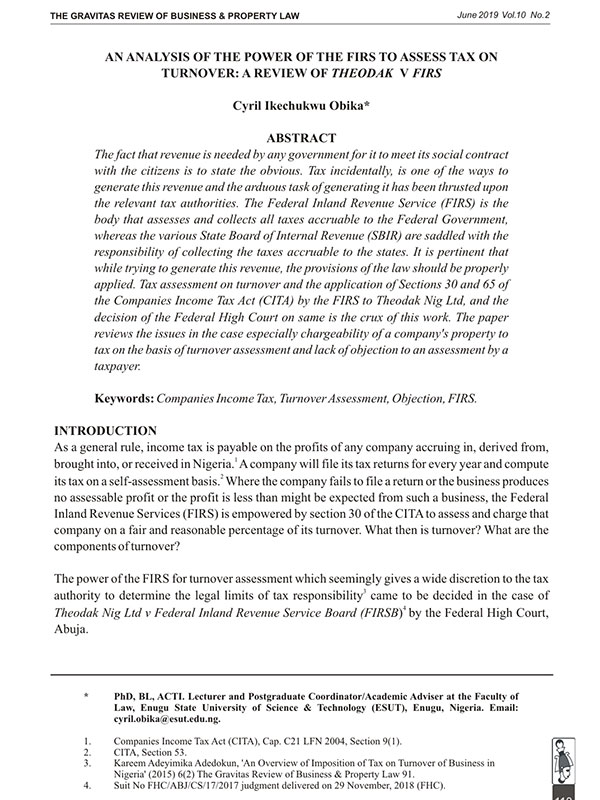
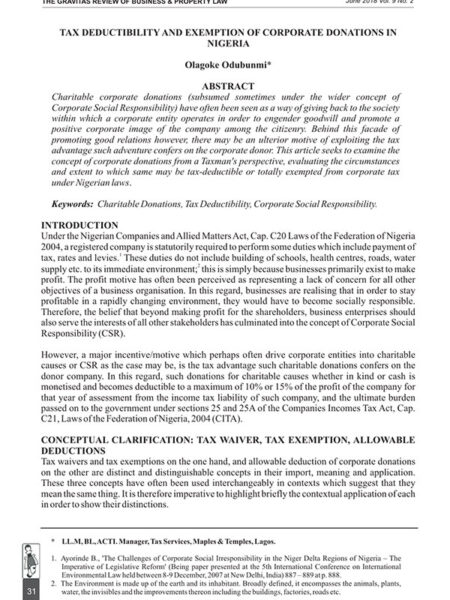
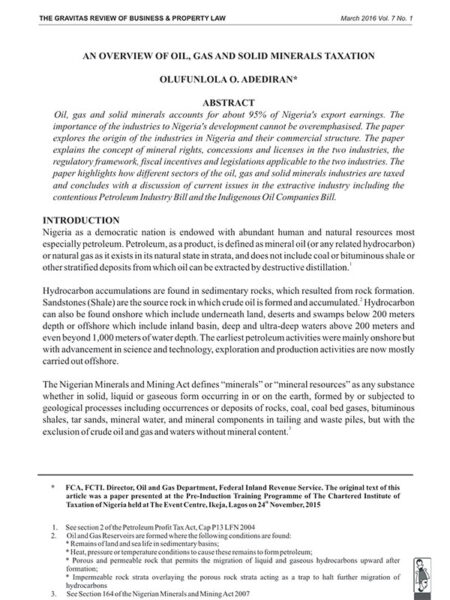
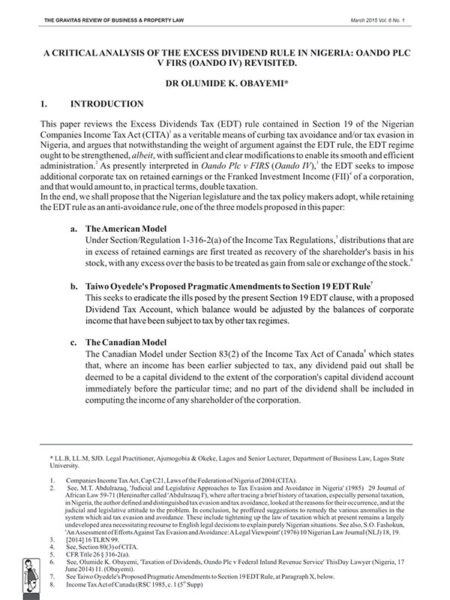
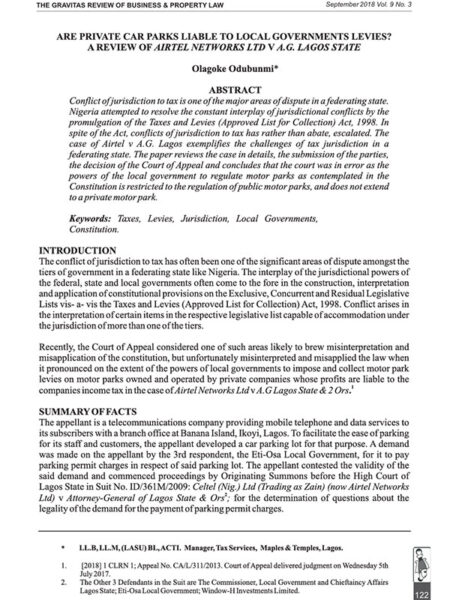


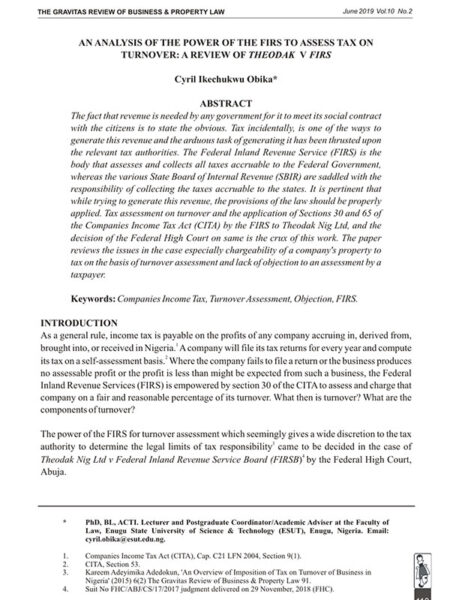
Reviews
There are no reviews yet.